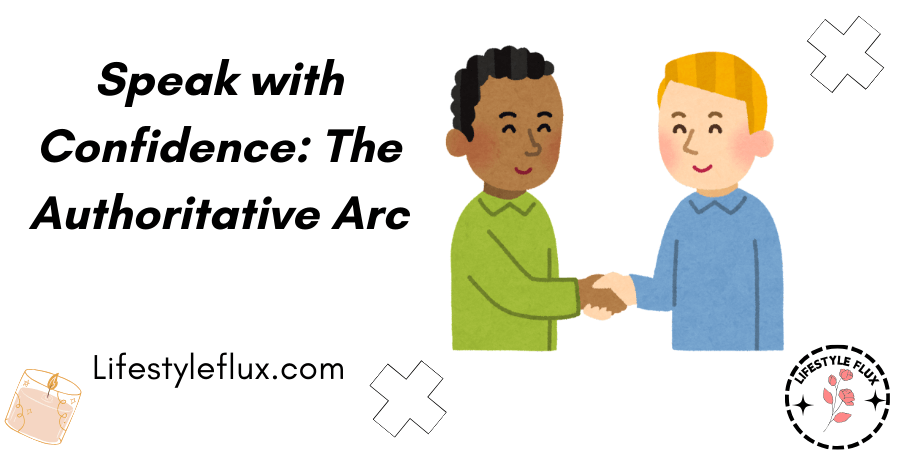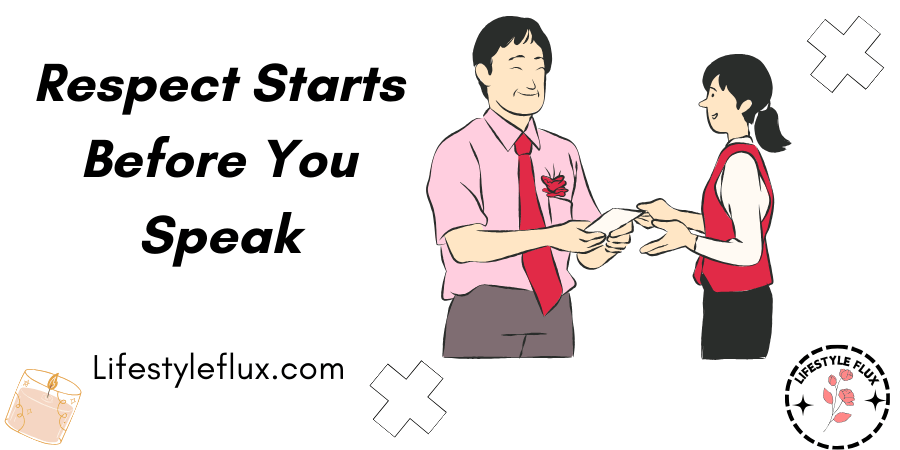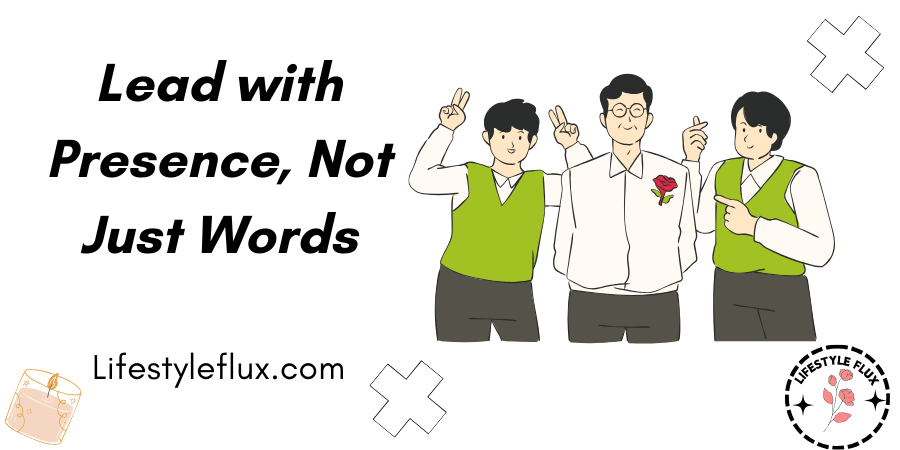The average person has 27 conversations a day. One might be with your boss, while another is just sending funny videos to your friend. Those 27 conversations, how often do you actually listen?
How many of those people do you take seriously? More importantly, how many of them take you seriously? You interact with people daily, yet you may rarely earn respect.
Why do you think that is? There are two common answers that get thrown around a lot. First, people won’t respect you if you don’t have any power. Think back to those two conversations with your boss and your friend.
What makes the first so much more important than the second? You care more about a conversation with your boss because they have power over you. But that doesn’t mean you respect them.
Plenty of people think their bosses are a few keys short of a keyboard, but they listen anyway. The second is that you lack something interesting to say. But if people don’t respect you, why would they take the time to listen?
You could’ve invented the first working time machine, but without respect, you may as well be sitting in a cardboard box pretending you’re Doctor Who. In other words, no one will care.
There’s one big reason why both of these strategies fail. Respect is almost entirely abstract. Imagine you walk into work and see a coworker who continuously disrespects you.
They’ve been talking over and ignoring you for years, and you’re sick of it. So what do you think? You walk right up to them and say, “Take me seriously.”
Do you think they actually will? Because I’m willing to bet they’ll laugh. Respect is about using little things to communicate a larger message. You need to sell people the idea that you’re worth respecting.
So, before you open your mouth, do something to make your words matter. Body language is a surefire way to earn the respect you’re looking for. The right body language convinces people to listen.
It proves that you’re worth believing and taking seriously. To ensure your words always carry weight, here are five body language tips to get you more respect.
Table of Contents
1. The Authoritative Arc
Trust is one of the most important components of respect. Your credibility tells people whether or not you’re worth listening to. They need to know that you aren’t lying or trying to trick them.
But how do you build trust with a complete stranger? Even if someone has no idea who you are, there are ways to create that instant bond. Think back to some of the greatest speeches ever given, like LBJ’s “The American Promise”.
The best leaders and speakers use more than just their words to inspire their audiences. They speak in a way that constantly communicates their credibility.
While the speech itself provides information, the speaker’s voice and body language make the audience care. The key is to act out your message.

In fact, congruency is often the first thing people look for. If you want to say something authoritative, you need your voice and body to read the same way.
Many people don’t realize the smallest inconsistencies can undermine their message. The most common problem is raising the pitch of your voice at the end of your sentences.
Normally, you raise your pitch to end a question or show uncertainty. That slight vocal change tells people that you don’t know what you’re talking about.
Even if you say something amazing, it can completely lose its impact. To make matters worse, people see this pitch-change as a sign of insecurity. It shows them that you need validation.
Instead, communicate confidence and passion by using the authoritative arc. Start at your normal pitch, get higher in the middle, and end the sentence where you started.
This slight change transforms the way you speak. It gives you tonal consistency, which shows people they can trust you.
2. Destroy Barriers
What if I told you your coffee may be keeping you from getting respect? Or, at the very least, hurting your chances. Any object that separates two people during a conversation is called a barrier.
Whether you’re sitting behind your desk or holding a hot cup of Joe, barriers divide your personal space from someone else’s. They’re great when you want to feel safe or comfortable.

But if your goal is to earn respect, barriers make interactions feel impersonal. Here’s the interesting thing about barriers. You usually don’t realize they’re there until they aren’t.
We unconsciously hide behind barriers all the time. Even when we’re talking to friends, we create these subtle boundaries to protect ourselves. You should actively tear down any and all barriers at the start of a conversation.
If you’re sitting at a table, move to the other side. If you’re holding your coffee, set it down and out of the way. It may sound insignificant, but people will immediately notice the difference.
You’ll seem more confident, while your words have a more personal impact. They’ll feel compelled to take you seriously because you’re showing them how invested you are in the conversation.
3. Implicit Impressions
A first impression starts before you ever open your mouth. You can easily ruin your chances of getting a job or building a friendship without saying a word.
Many people decide in the first few seconds if they’re going to respect you or not. It isn’t the most effective strategy, but that’s just how our brain works. Say you get hired to work at a small start-up.
You’re the company’s first outside hire, so you’re understandably a little nervous. How can you alter your body language to get their respect right off the bat?
The obvious answer is to dress nice and stay clean. If you didn’t already know, walking into work with a coffee stain on your shirt is a bad idea. Remember, these people don’t know you.

They won’t cut you any slack, so every mistake counts. What about more subtle types of body language? The way you stand is a big deal, especially if you’re stepping into a leadership position.
Straighten your back, uncross your arms, and widen your stance. If it helps, pretend you’re walking into a room full of bears. When you don’t make yourself big, they’ll eat you for dinner.
Finally, pay attention to your expression. When meeting new people, your own face may be the last thing on your mind, but it’s the first thing on theirs.
For example, if you want to be approachable, you need to smile. Just don’t give a big, toothy smile like you’re having your picture taken.
You want to show that you’re friendly and welcoming, not a serial killer. If you can manage each of these nonverbal signals, you can win people over in seconds.
4. Power Cues
If you’re not getting the respect you deserve, you should use your body language to communicate vertical power. You may be the boss, but your certain physical features can unfairly undermine your authority.
New leaders often struggle to be assertive, especially with veteran employees. They don’t listen or take you seriously, which makes your job that much harder.
Luckily, there are several subconscious techniques you can use to solidify your position. For starters, increase the volume of your voice. I don’t mean yelling because that can easily backfire.

The last thing you want is a screaming match with an employee. Raise the volume of your natural speaking voice while staying calm and polite. Honing in will have a similar effect.
If you want something done, make eye contact with a specific person and use their name. General requests are often overlooked and ignored, while specifics create personal responsibility.
No matter which techniques you use, consistency is key. Just like you want your words and actions to match, you can’t be assertive one day and a pushover the next.
If you aren’t consistent, people will see right through you.
5. Follow the Leader
Nonverbal encouragement is rarely talked about but is an effective way to pull people in. The logic behind this technique is basic. You invest in them, so they invest in you.
The best salesmen use this strategy all the time. Let’s say you’re trying to buy a car. You walk into the dealership, and a stranger greets you like you’re childhood friends.
They enthusiastically shake your hand and completely open themselves up. They mirror your body language and remove barriers. They gesture with their hands to show interest and passion.
Even if they’re talking about cars, they’re using their body language to connect with you emotionally. Why does this work so well? When you form a bond with someone, they start to respect your opinions.
Of course, none of this works if you’re faking it. The more genuine interest you show, the stronger connection you develop.
Conclusion:
Respect isn’t just about what you say—it’s about how you say it. The right body language can make the difference between being ignored and being taken seriously.
Whether it’s mastering the authoritative arc, breaking down barriers, or using power cues, these small, intentional changes can shift the way people perceive you.
When you walk into a room, let your presence do half the talking. Because in the end, respect isn’t demanded—it’s earned, one subtle cue at a time.
Sources:
https://www.entrepreneur.com/leadership/7-ways-body-language-speaks-louder-than-words/278691
https://content.time.com/time/specials/packages/article/0,28804,1841228_1841749_1841741,00.html
The 8 Worst Speeches in Modern Political History

Founder and CEO of Lifestyleflux.com, I bring years of expertise in self-improvement, wellness, and personal development to help you lead a happier, more balanced life. Through practical insights, eBooks, and consultations, I share actionable strategies rooted in experience and a passion for empowering others to unlock their full potential.

